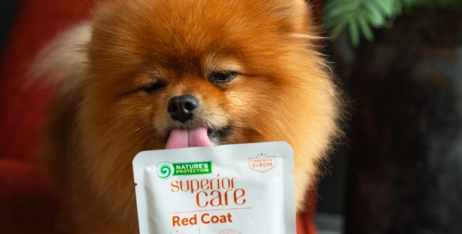Which dog treats are the best? Understanding the difference.
Which dog treats are the best? Understanding the difference.
As caregivers to our animal companions, we find joy in rewarding them with treats. Yet, amid the plethora of options available, from crunchy bites to chewy delights, selecting the ideal treat can pose a challenge. In this guide, we aim to explore the diverse range of pet treats empowering you to make well-informed choices for your cherished pets.
Varieties of Treats:
- Biscuits: These crispy treats come in assorted flavors, often incorporating various meats, vegetables or even cheese. While they boast high carbohydrate content, they may also contain fillers, synthetic colors, and preservatives.
- Chews: Renowned for their resilience, chews typically offer high protein and fat content, presenting a satisfying option for your pet. They frequently comprise natural elements like rawhide, bully sticks, or meat. However, chews may pose digestive challenges such as blockages or irritation and could potentially lead to dental issues like fractured teeth, especially with tougher chews.
- Jerky Treats: Known for their intense flavors and chewy texture, jerky treats are rich in protein and low in carbohydrates. Crafted from natural meat with minimal processing and additives, they are a beloved choice among many pets. Nonetheless, a notable drawback of jerky treats is their elevated salt levels, which might contribute to dehydration and heightened blood pressure, particularly with excessive consumption. Certain commercially produced jerky treats may harbor additives or preservatives that could pose long-term risks to pets.
- Freeze-Dried Delicacies: Preserving the authentic flavor and nutrients of the ingredients, freeze-dried treats are abundant in protein and low in carbohydrates. Comprising real meat or fish, they undergo the freeze-drying process to retain their nutritional integrity. These treats tend to come with a higher price tag.
- Semi-Moist Temptations: Soft and chewy, semi-moist treats, like Nature's Protection Dog Treats, are primarily composed of meat or fish, ensuring a delectable taste alongside nutritional advantages for pets.
- Soft Treats: Resembling semi-moist treats, soft snacks boast a chewy and flavorsome profile, with meat, fruit, or vegetable essences. They offer moderate levels of protein and fat, yet may contain added sugars and synthetic flavors. Soft treats also often require more preservatives to keep the fresh.
- Dry Treats: Providing a gratifying crunch, dry snacks such as Nature's Protection Cat Treats come in various flavors, including meat or fish. Crafted from wholesome ingredients like seaweed, meat, and vegetables, they present a nutritious choice for your pet. Due to the dry nature of the treat they require less preservatives and are a great option for pets who enjoy crunchy snacks.
While treats undoubtedly contribute to the delight of your pet's diet, they should constitute only a minor portion of their overall nutritional intake. The cornerstone of their daily dietary needs should always consist of complete and balanced dry food. It is imperative to familiarize ourselves with the array of pet treats on offer, ensuring our furry companions receive both nourishing and enjoyable indulgences. While some treats offer delightful taste and a satisfying texture, they may lack in nutritional content. Chews present a protein-rich option but carry potential choking hazards. Although jerky treats are flavorful, they may harbor excessive salt, necessitating moderation. Freeze-dried treats retain nutrients but can be pricey, while semi-moist options strike a balance between taste and health benefits. Soft snacks cater well to elderly pets, and dry snacks, while budget-friendly, may not appeal to discerning palates. The key here is learning to read the labels and finding the products that are not only tasty but also healthy. By taking into account factors such as nutritional composition, flavor, and texture, we can make educated decisions to uphold the well-being and happiness of our beloved pets.
FAQs:
- Are treats essential for my pet's diet? Treats should only make up a minor portion of your pet's overall nutritional intake. While they add enjoyment to their diet, the foundation of their daily nutrition should be complete and balanced dry food.
- What should I consider when selecting treats for my pet? When choosing treats, consider factors such as nutritional content, flavor, texture, and ingredient quality. It's crucial to opt for treats that not only taste good but also provide health benefits.
- Are there any risks associated with certain types of treats? Yes, some treats may pose risks such as digestive issues, dental problems, or excessive salt intake. Chews, for example, can present choking hazards, while jerky treats may contain high levels of salt.
- How can I ensure I'm making informed choices about pet treats? Familiarize yourself with the different types of treats available and read labels carefully. Look for treats made from natural ingredients, with minimal processing and additives. It's also advisable to consult with your veterinarian for recommendations tailored to your pet's specific needs.
- Are there any specific considerations for older pets when it comes to treats?Yes, soft treats can be particularly suitable for elderly pets who may have dental issues or difficulty chewing harder textures. Additionally, it's important to monitor older pets' treat intake, as they may have different nutritional requirements than younger animals.










